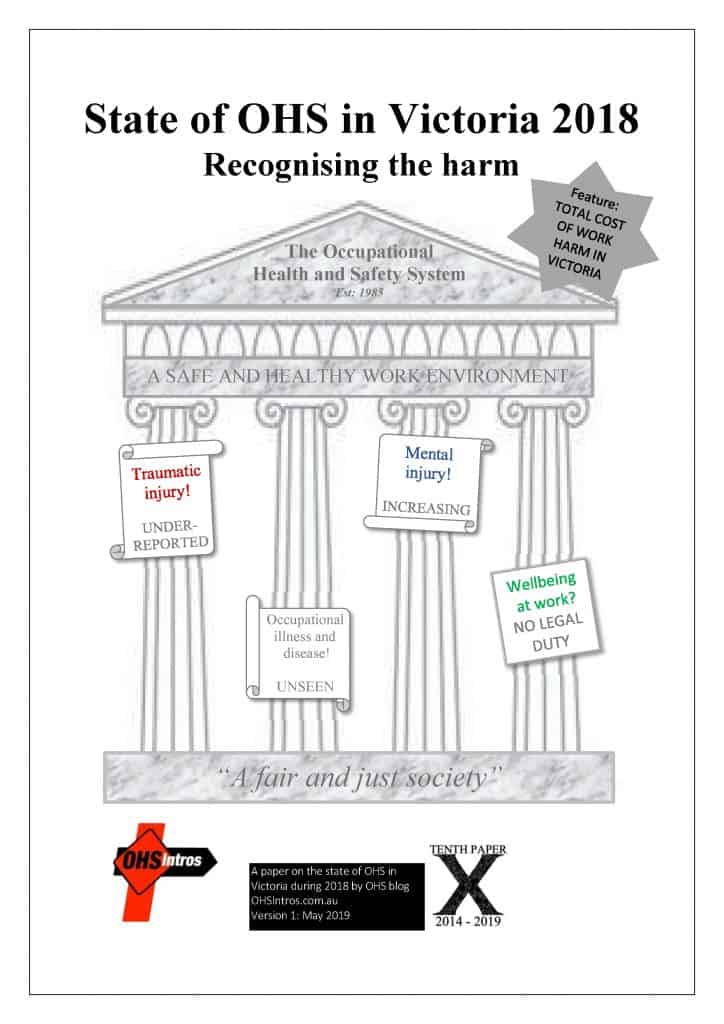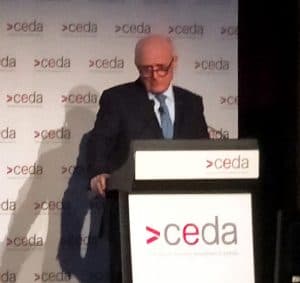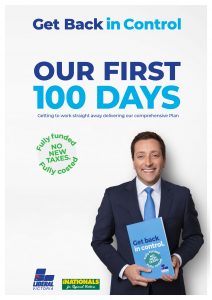Public submissions for Victoria’s Royal Commission into Mental Health close on July 5 2019. If you believe that work-related mental health is important, tell the Royal Commission through its, very easy, online submission process. Below is the text of the submission I made earlier this week.
The website asks you questions, many more than I answered, so you just have to think a little bit, and comment. If you don’t have time for a detailed submission, there is a Brief Comments option.
What is already working well and what can be done better to prevent mental illness and to support people to get early treatment and support?
Employers have had legislative obligations to provide safe and healthy work environments for many decades, but the inclusion of psychological health has been largely overlooked in preference to those hazards that have a direct relationship to traumatic injury and death. It is only since 2000, and the various campaigns since to prevent and reduce stress and bullying, that psychological risks have been on the workplace agenda.



 Some media reports on the
Some media reports on the  Earlier this week former chair of the Australian Government’s
Earlier this week former chair of the Australian Government’s  The Australian Government has released the
The Australian Government has released the 